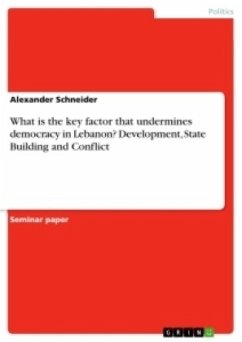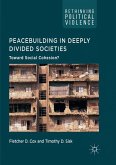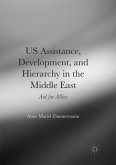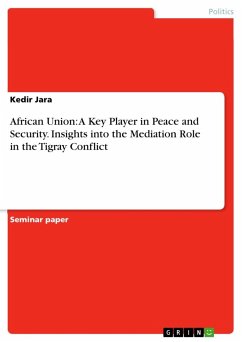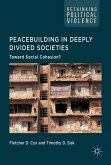Seminar paper from the year 2016 in the subject Politics - International Politics - Region: Near East, Near Orient, grade: 1,7, University of Essex, language: English, abstract: The political system in Lebanon remained paralyzed in 2015, leaving the presidency vacant since the expiration of the last term in May 2014, while extending the National Assembly's term twice since 2013. Furthermore, due to the still ongoing civil war in Syria and the immediate threat of the so-called Islamic State, the country is facing a wave of more than one million registered Syrian refugees as well as a direct involvement in the conflict by the Islamist militant group and political party Hezbollah. The case of the Palestinian refugees permanently living in Lebanon for decades is a still long-lasting issue for the Lebanese society and is in need of setting a new concept for a successful integration of the Palestinians into the political framework of the country. The object of this paper is to work outthe theoretical background of Lebanon's "partly free" political system, giving a review on the country's history from the period of the Ottoman Empire until now in the second part, then analyzing in the main part the various factors, which play an important role in the democratization process as well as apply the previously specified theories and approaches to the actual challenges the country is still facing in its political life. In addition to that, several reformation proposals will be critically described and interpreted in order to work out the quintessence of the challenges Lebanon has to cope with in its near future.

